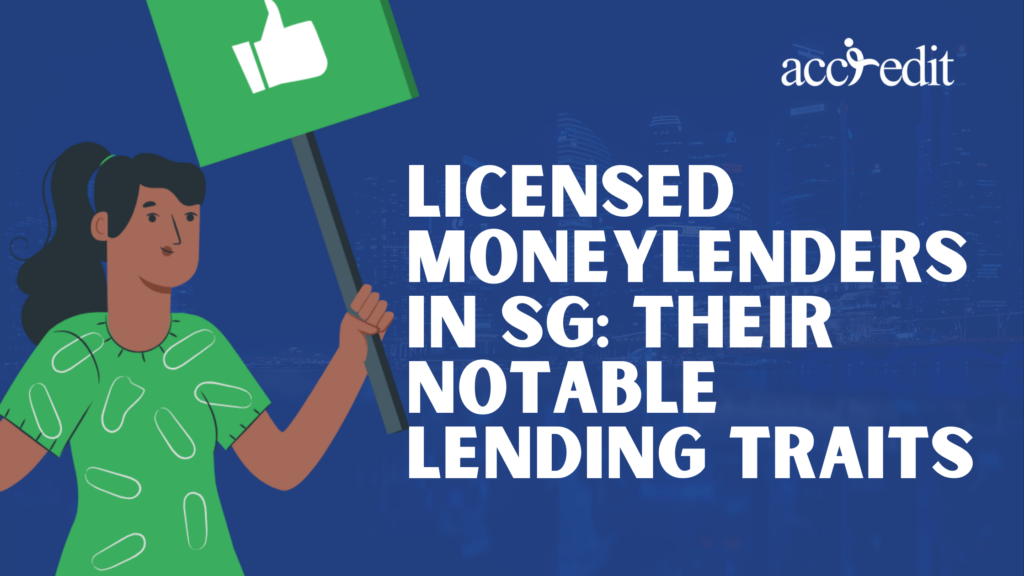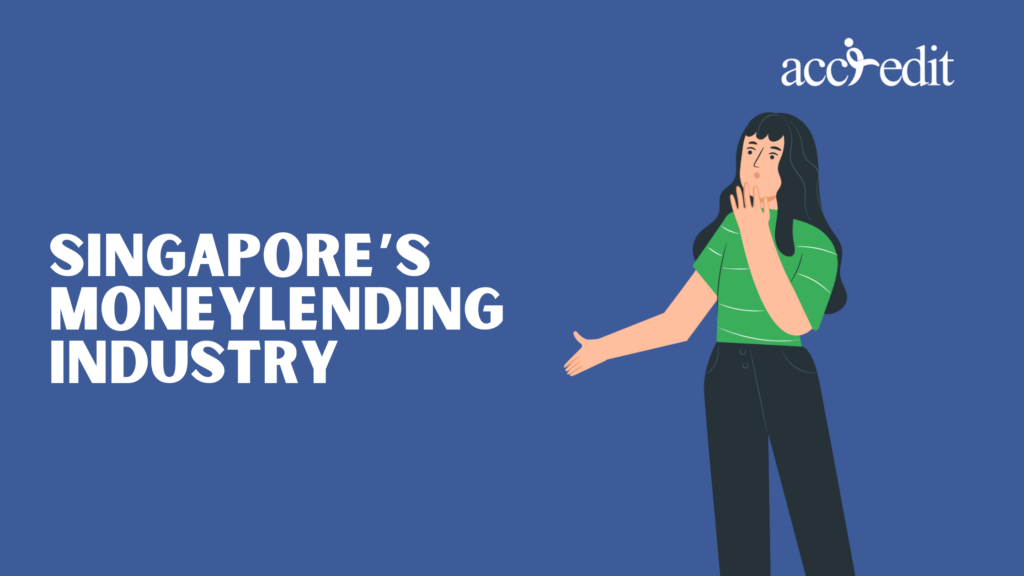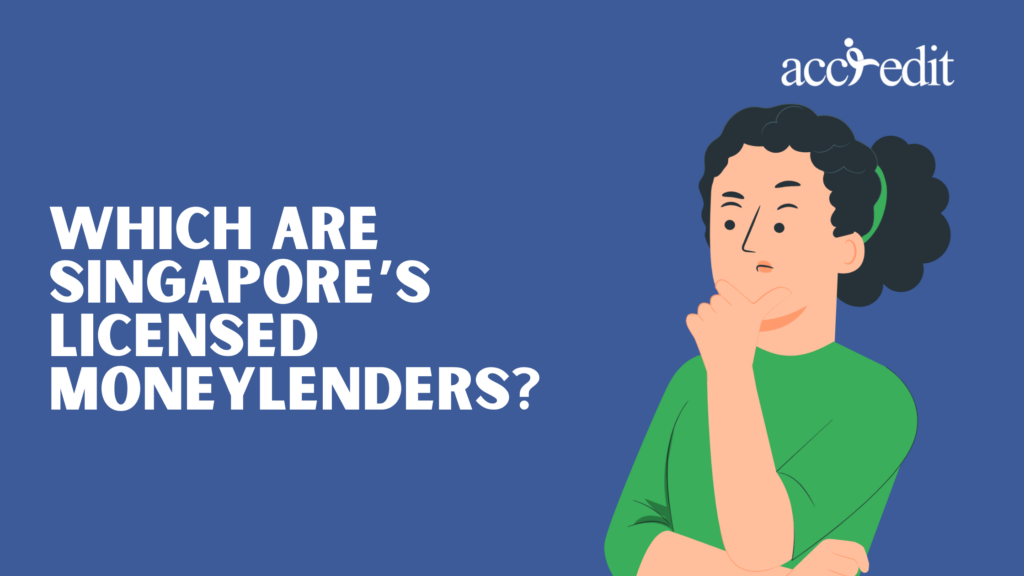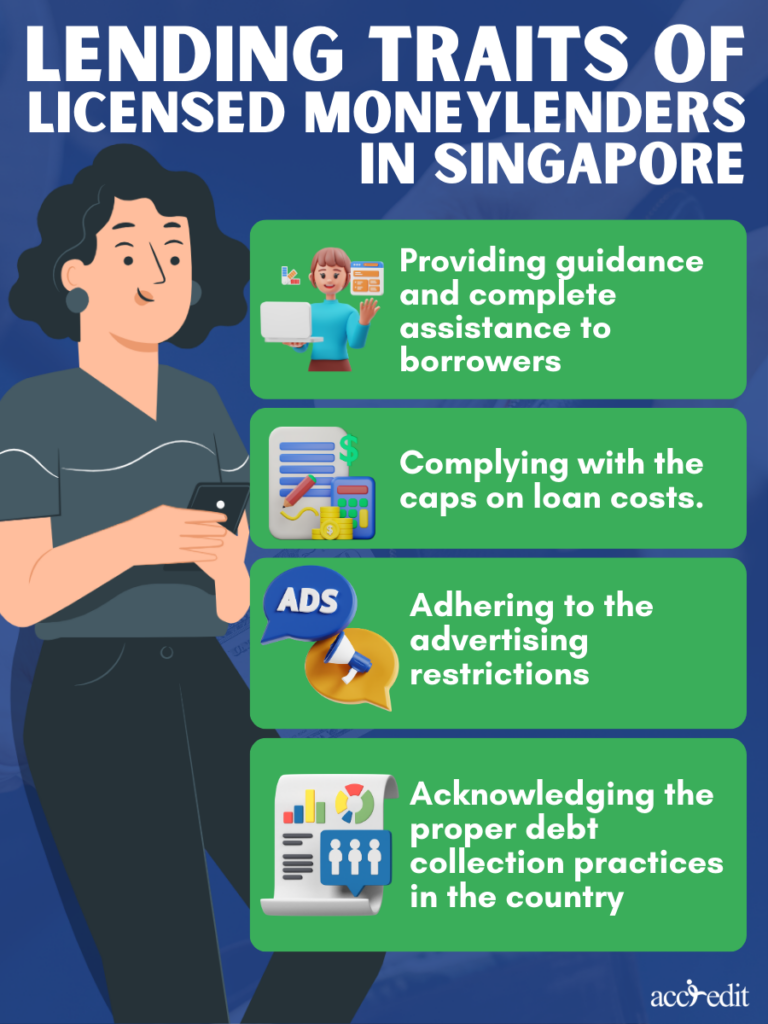
Even during ancient times, Singapore was already famous for its trading network and proactive engagements in commerce. These tradings and transactions were usually shared with Singapore’s neighbouring regions and ports. These days, it’s evident from the popularity of the lending industry and licensed moneylenders in Singapore.
Singapore’s Moneylending History

The country was considered an important trading centre to which economic growth flourished. Among the most critical periods in Singapore’s trade and commerce history was when it became the designated British protectorate, which also amplified the transit trade.
The British greatly influenced Singapore’s overall commerce and trade practices. Due to this, the Singapore Parliament enacted the Moneylenders Act in 1936 as the “Moneylenders Ordinance”. The primary model for the legislation is from the English Moneylenders Acts of 1900 (UK) and 1927 (UK).
The Singapore Parliament, specifically the Ministry of Law, proceeds to improve and modernise the Moneylenders Act and Rules to fit the modern-day requirements of every Singaporean citizen, permanent resident, and foreign national residing and earning in the country.
Singapore’s Moneylending Industry

Today, Singapore is at its peak as one of the most livable and wealthiest countries in Southeast Asia. Its reputation is notable worldwide because of its laws, regulations, and thriving economy.
Among the specific reasons for Singapore’s popularity is its moneylending industry. Moneylending in Singapore has become a sustainable and preferred choice by Singaporean communities in terms of easy and faster loan transactions.
Despite the positive economic effects and profitable opportunities it offers borrowers in Singapore, the Ministry of Law, and the Singapore Police Force continue to battle illegal activities associated with moneylending.
Knowing the facts regarding moneylenders in the country is crucial for a person currently in Singapore. Moneylenders in Singapore are divided into two groups: licensed and unlicensed. To pursue safe and hassle-free financial transactions, all borrowers should only deal with licensed moneylenders.
However, which are the legal lenders in Singapore? What traits or characteristics give away a moneylender, whether they are licensed or not? When do borrowers report unjust moneylending incidents? Where can they find licensed lenders in Singapore?
Let’s discuss the matter further below.
Moneylenders in Singapore

The moneylending industry in Singapore proceeds to improve its growth and influence in the country’s economy. It could be because of the moneylenders’ proactive approach to pushing their business growth.
Moneylenders in Singapore are individuals, groups or businesses that provide and distribute goods, services, and cash to people who request loans. The debt that moneylenders grant to borrowers may have a high-interest rate.
The moneylender’s business in Singapore may offer financial assistance to their debtors. However, it does not mean they’re in the same sector as banks and other financial institutions.
The Ministry of Law reviews and sets the regulations imposed on moneylenders in Singapore. Every moneylender in the country should faithfully abide by the Moneylenders Act and Rules.
Which are Singapore’s Licensed Moneylenders?

The Registry of Moneylenders must recognise the registered moneylenders in Singapore. How would a borrower know if the moneylenders in Singapore are on the list of registered individuals or businesses in the moneylending industry?
The Registry of Moneylenders has compiled these legal moneylenders in Singapore. A borrower must visit the Ministry of Law website and search for the Registry’s page.
A link is provided below, and as soon as it’s clicked, it’ll direct to a spreadsheet with every valid and enlisted licensed moneylender in the Republic of Singapore. The information provided in the spreadsheet includes the registered moneylenders’ business name, business address, license number, business landline number, and the official business URL.
From the spreadsheet proffered by the Registry, there’s a notice explicitly stating that any moneylender with a license that’s been suspended is accessible in a separate list at the bottom of the page.
Lending Traits of Licensed Moneylenders in Singapore
Licensed moneylenders in Singapore engage in their business activities with strict adherence to the Moneylenders Act. Due to this cohesion, it becomes easier for borrowers to recognise the characteristics of licensed moneylenders in the country, such as;

1. Providing guidance and complete assistance to borrowers on requirements and loan terms.
It is a reality that not all borrowers understand the entirety of a loan contract. Thus, through the Moneylenders Act, licensed moneylenders must explain all the loan terms to their borrowers in languages they would best comprehend.
legal moneylenders will always reveal the loan contract from their borrowers, especially the copy. All documents that have to be in the borrower’s possession shall be endorsed by the licensed moneylender, specifically, the signed loan contract copy with the terms in writing.
In addition to the mentioned characteristics, registered moneylenders in Singapore must give their clients a written cautionary statement separately.
Also, for every existing loan with a borrower, the licensed moneylender must issue receipts for all repayment made for the loan.
The legal moneylenders must show proof of statement of accounts to their borrowers once every half of the year. These usually fall in January or July.
2. Complying with the caps on loan costs.
Licensed moneylenders in Singapore can only charge a one-time administrative fee that will be at most 10% of the loan principal.
Interest rate charges imposed by legal moneylenders in Singapore should be at most 4% per month.
When the borrower fails to pay at the specific schedule, registered moneylenders are permitted only to enforce late interest rates. It is capped at 4% per month.
$60 is chargeable to the borrower for late fees per month.
It is against the law for registered moneylenders to require borrowers to pay exceeding amounts or go beyond the double principal borrowed. If a situation arises like this, borrowers are encouraged to lodge a report with the Registry of Moneylenders.
By the Moneylenders’ Act, the maximum amount that legal moneylenders may offer for personal loans or unsecured loans is;
- $3,000 for Singaporean Citizens and Permanent Residents and $500 for foreigners residing in Singapore who have less than $10,000 annual income
- $3000 for all communities in Singapore with at least $10,000 and less than $20,000 annual income
- Six times the monthly income cap permissible for Singaporean Citizens, Permanent Residents, and foreigners residing in the country who earns at least a yearly income of $20,000
3. Adhering to the advertising restrictions.
Legal moneylenders in the country must not make false claims or share misleading statements to get their prospects to borrow from them. It would often be done by enticing the borrower with lower interest rates or promising a faster loan procedure.
At these times, SMS and social media platforms are among the comprehensive means of advertising. Nevertheless, the Ministry of Law discourages registered moneylenders from sending their services through the abovementioned platforms.
Licensed moneylenders must only endorse or encourage people to take a loan or grant it if the individual request it.
Legal moneylenders in Singapore have official websites where clients may initially reach them or acquire information on personal loans and other financial services.
A personal loan is an unsecured loan product in Singapore. Other lenders do grant this specific loan. But, legal moneylenders in the country have gained much popularity in giving personal loans due to the easy loan application and faster approval.
Aside from the official business website, advertisements like Yellow Pages may be posted outside their offices or within Singapore’s business directors. These are the sole permissible platforms registered moneylenders can use to advertise the business.
Singapore’s citizens are covered and protected by the Personal Data Protection Act 2012 (PDPA). Attainable personal data is an individual’s right.
Suppose a person wishes to refrain from receiving marketing phone calls or texts, MMS, private messages through different apps, and faxes from diverse organisations. In that case, they have the legal claims to register under the Do Not Call Registry. Through the DNC, communities in Singapore opt out of getting unwanted marketing texts and calls effectively.
If a supposed “licensed moneylender” still reached their targets even when the individual was under DNC Registry, it is likely the former is operating with illegal intent.
4. Acknowledging the proper debt collection practices in the country.
It is only natural for registered moneylenders in Singapore to pursue the money they’ve given for loans to their borrowers. Yet they have to follow specific steps to recover the debts unpaid by borrowers.
Legal moneylenders in Singapore need to seek the court’s legal ruling to get their money back. But they are prohibited from enforcing unjust and unfavourable behaviours like;
- Stalking the borrower, specifically family, friends, colleagues, and employers.
- Sending notices that are exposed and shames the borrower when they’re at their workplaces.
- Openly displays the notice of demand outside the borrower’s property or residence.
- Cause a lot of disturbance to the borrower’s residence and workplace, provoking a massive inconvenience to neighbours, colleagues, or customers.
Reasons to Pursue Transactions with Licensed Moneylenders
The pressure to provide for one’s family, personal needs, or business funds is undeniable. No one wants to find themselves in a situation where they’d feel trapped and helpless.
Regardless of the circumstances, a borrower shouldn’t give in to illegal moneylending activities. The trouble is far worse than anyone expects and may lead to more problems.
If you cannot comply with the bank’s requirements for personal loans, look for a better and authorised alternative. These are the licensed moneylenders in Singapore. Legal moneylenders offer more flexible terms for most loan products, particularly personal loans.
Suppose you have a bad credit score or record; it can lead to diminished confidence. However, these legal moneylenders can forgive credit history and scores. So long as you have stable employment and income to ensure loan repayment.
Additionally, all dealings are within the regulations of the Moneylenders Act, ensuring a borrower’s safety and protection. Thus, when you require fast, accessible, and legitimate cash transactions, you should always consider a licensed moneylender in Singapore.

